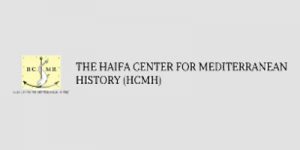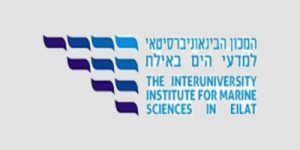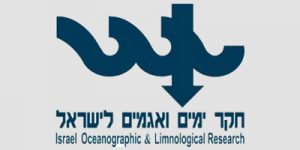Research Centers and Partners
Mediterranean Sea Research Center of Israel

Recent discoveries of significant reserves of natural gas in the Mediterranean Sea off the coast of Israel have catapulted the Mediterranean Sea into the international spotlight and onto Israel’s national agenda.
MERCI – Mediterranean Sea Research Center of Israel is a consortium of seven universities, two colleges and two governmental research institutes, working under the leadership of the University of Haifa, to address an unprecedented array of scientific, technological, economic, security, and environmental challenges and opportunities resulted from the rapid development of the Eastern Mediterranean offshore.
MERCI focuses on:
- Developing the modern, scientific infrastructure needed to study the coastal and offshore Eastern Mediterranean
- Educating a new generation of scientists and researchers who will serve as Israel’s decision makers in academia, the government, industry and NGOs
- Ensuring sustainable development of Israel’s national resources in the Eastern Mediterranean
The Mediterranean Sea Research Center of Israel’s activities set Israel on the path to academic excellence and sustainable energy independence.
Helmholtz Project for Ocean Research Kiel

A partnership exists between the GEOMAR Helmholtz Centre for Ocean Research Kiel and the University of Haifa to establish the Helmholtz International Laboratory in the eastern Mediterranean Sea as a model for Ocean Research (EMS FORE).
The eastern Mediterranean Sea is one of the most rapidly changing ocean basins on our planet, impacted by both climate change and extensive human pressures. The eastern Mediterranean Sea serves as an early warning and model system to examine ecosystem resilience and sensitivity of future oceans under climate change. The International Helmholtz Lab EMS-FORE, based in Haifa and the eastern Mediterranean Sea (as a natural laboratory), combines GEOMAR’s unique experience in investigating processes in global oceans with Haifa’s in-depth insights into the functioning of the eastern Mediterranean Sea. GEOMAR and Haifa utilize their knowledge and infrastructure to investigate ecosystem transitions in the eastern Mediterranean Sea. Led by Prof. Eric Achterberg (GEOMAR) and Prof. Ilana Berman-Frank (U. of Haifa), a core team of around 30 researchers and students studies the Mediterranean Sea as an early-warning model system that focuses on what the state of climate change in the Mediterranean Sea tells us about future conditions in oceans worldwide. Multidisciplinary marine research examines seafloor processes and sedimentary records to inform us about the past, water column processes to reveal what is currently occurring, technological developments to improve measurements of our oceans, and modeling work to explore what the future looks like for the Mediterranean Sea and the global oceans.
We use world-class facilities, multiple technologies for ocean observations, experimental manipulations, research vessels, long-term moorings and deployments of underwater vehicles, novel cameras and chemical sensors, and marine ecosystem models to integrate the data and predict future oceanic responses.
The Wydra Center for Ports and Shipping Research

Founded in 1969 by Dr. Naftali Wydra, the Wydra Center for Strategic Shipping Research at the University of Haifa is a leader in maritime studies, fostering strong connections within the Israeli shipping community. The center gained recognition in 1975 with its first research on Israel’s shipping industry and relocated to the University of Haifa in 1987, establishing a dedicated shipping library that serves scholars and industry practitioners.
With over 150 studies completed, the center is known for its rigorous analysis across shipping, ports, and related industries. It collaborates closely with Israel’s Ministry of Transportation to provide insights for national maritime policies and emphasizes publishing and distributing scholarly work.
In 2024, the center launched a digitization project with the University of Haifa Library to preserve its legacy and expand its research reach globally. Looking ahead, the Wydra Center is committed to advancing maritime research and adapting to the evolving challenges in the shipping industry.
Haifa Center for Mediterranean History

The Haifa Center for Mediterranean History (HCMH), founded in 2016, aims to promote the historical study of the Mediterranean in the University of Haifa. The Center’s activities are varied, and they all focus on research, from the Ph.D. level and beyond.
The HCMH works to enhance and re-focus scholarship in Haifa, securely setting it within the vibrant local and international networks of Mediterranean historical research. HCMH promotes Mediterranean research within broad geographical, chronological and theoretical frameworks. It recruits excellent new faculty members, and junior researchers, thereby strengthening the field of Mediterranean studies in Haifa and in Israel more broadly.
Special emphasis is placed on the eastern basin of the Mediterranean, as well as on cross-disciplinary collaboration in wider Mediterranean themes, such as marine sciences and ecology, in which the University of Haifa has already acquired a leading position.
Opportunities and activities include tenure track positions, PhD and postdoctoral scholarships, international research groups, visiting positions, international conferences, seminars and workshops.
Interuniversity Institute for Marine Sciences in Eilat

The Interuniversity Institute for Marine Sciences in Eilat (IUI) evolved from the H. Steinitz Marine Biology Laboratory (MBL) established by the Hebrew University in 1968. In 1985 the wide scopes and the heterogeneity of scientific disciplines at the MBL, induced the Israel Council for Higher Education (ICHU) to transform the MBL into a national facility, shared by all Universities in the country. Consequently, the IUI was established as the only interuniversity teaching and research facility in Israel, directly reporting to the Budget and Coordinating Committee (BCC) of the ICHU.
Research activities at the IUI span the whole spectrum of marine sciences, including Ecology, Chemical, Physical and Biological Oceanography, Ichthyology, Invertebrate and Vertebrate Biology, Neurobiology, Molecular Biology and Marine Biogeochemistry.
Leon Recanati Institute for Maritime Studies

The Leon Recanati Institute for Maritime Studies at the University of Haifa (RIMS) was established in 1972. Guided by an interdisciplinary concept, the Institute conducts and promotes research projects, which encompass humankind’s activities relating to the sea, bringing to light what was known in the past, our involvement in the present, and what we may accomplish in the future. By combining disciplines, such as marine and coastal archaeology, maritime history, marine geology and coastal geomorphology, marine biology and marine resources, the Institute bridges between the Humanities, Sciences and Technology. The Institute conducts numerous collaborative research projects with other research institutions in Israel and abroad.
Israel Oceanographic and Limnological Research Institute

Israel Oceanographic and Limnological Research (IOLR) is a national research institution (non-profit governmental corporation) established in 1967 to generate knowledge for the sustainable use and protection of Israel’s marine, coastal and freshwater resources.



